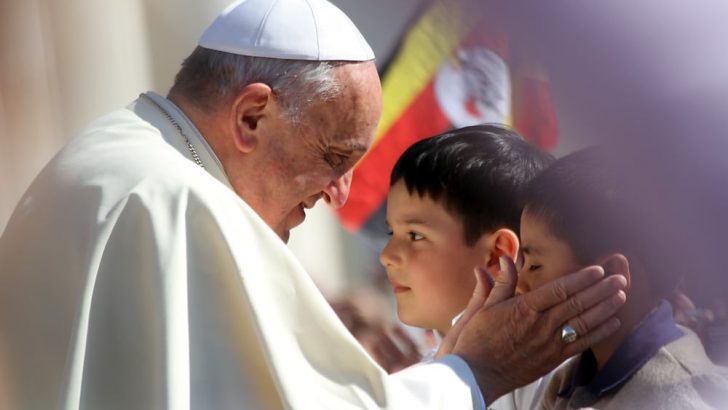On October 4, the feast of St Francis of Assisi, Pope Francis released a new encyclical entitled, Fratelli Tutti – On Fraternity and Social Friendship. It can appear a rather depressing read because of its searing realism, except it plays the long game of Christian hope.
Fratelli Tutti lays out reasons why there’s so much injustice, inequality and community breakdown in our world and how in faith and love these might be addressed. The intent here is not to give a synopsis of the encyclical, other than to say it’s courageous and speaks truth to power. Rather the intent is to highlight a number of special challenges within the encyclical.
First, it challenges us to see the poor and to see what our present political, economic and social systems are doing to them.
Superficiality
Looking at our world, the encyclical submits that in many ways it is a broken world and it names some reasons for this: the globalisation of self-interest, the globalisation of superficiality and the abuse of social media, among other things. This has made for the survival of the fittest. And while the situation is broken for everyone, the poor are ending up suffering the most.
The rich are getting richer, the powerful are getting more powerful, and the poor are growing poorer and losing what little power they had. There’s an ever-increasing inequality of wealth and power between the rich and the poor and our world is becoming ever more calloused vis-à-vis the situation of the poor.
Inequality is now accepted as normal and as moral and indeed is often justified in the name of God and religion. The poor are becoming disposable: “Some parts of our human family, it appears, can be readily sacrificed for the sake of others. Wealth has increased, but together with inequality.”
In speaking of inequality, the encyclical twice highlights that this inequality is true of women worldwide: “It is unacceptable that some have fewer rights by virtue of being women.”
The encyclical employs the parable of the Good Samaritan as its ground metaphor. It compares us today, individually and collectively, to the priest and the scribe in that parable who for religious, social and political reasons walk past the one who is poor, beaten, bleeding and in need of help. Our indifference and our religious failure, like that of the priest and the scribe in the parable, is rooted both in a personal moral blindness as well as in the social and religious ethos of our society that helps spawn that blindness.
Globalisation
Fratelli Tutti goes on to warn that in the face of globalisation we must resist becoming nationalistic and tribal, taking care of our own and demonising what’s foreign. It goes on to say that in a time of bitterness, hatred and animosity, we must be tender and gracious, always speaking out of love and not out of hatred: “Kindness ought to be cultivated; it is no superficial bourgeois virtue.”
The encyclical acknowledges how difficult and counter-cultural it is today to sacrifice our own agenda, comfort and freedom for community, but invites us to make that sacrifice: “I would like especially to mention solidarity which is a moral virtue and social attitude born of personal conversion.”
The title, while beautiful in an old classical language, is in the end masculine. That should be forgivable…”
At one point, the encyclical gives a very explicit (and far-reaching) challenge. It states unequivocally (with full ecclesial weight) that Christians must oppose and reject capital punishment and take a stand against war: “St John Paul II stated clearly and firmly that the death penalty is inadequate from a moral standpoint and no longer necessary from that of penal justice. There can be no stepping back from this position.
“Today we state clearly that ‘the death penalty is inadmissible’ and the Church is firmly committed to calling for its abolition worldwide. All Christians and people of good will are today called to work not only for the abolition of the death penalty, legal or illegal, in all its forms, but also to work for the improvement of prison conditions.”
As for war: “We can no longer think of war as a solution, because its risks will probably always be greater than its supposed benefits. In view of this, it is very difficult nowadays to invoke the rational criteria elaborated in earlier centuries to speak of the possibility of a ‘just war’.”
Fratelli Tutti has drawn strong criticism from some women’s groups who label it ‘sexist’, though this criticism is based almost exclusively on the encyclical’s title and on the fact that it never makes reference to any women authors. There’s some fairness, I submit, in the criticism regarding the choice of title.
The title, while beautiful in an old classical language, is in the end masculine. That should be forgivable; except I lived long enough in Rome to know that its frequent insensitivity to inclusive language is not an inculpable oversight. But the lapse here is a mosquito bite, a small thing, which shouldn’t detract from a big thing, namely, a very prophetic encyclical which has justice and the poor at its heart.


 Fr Ronald Rolheiser
Fr Ronald Rolheiser
